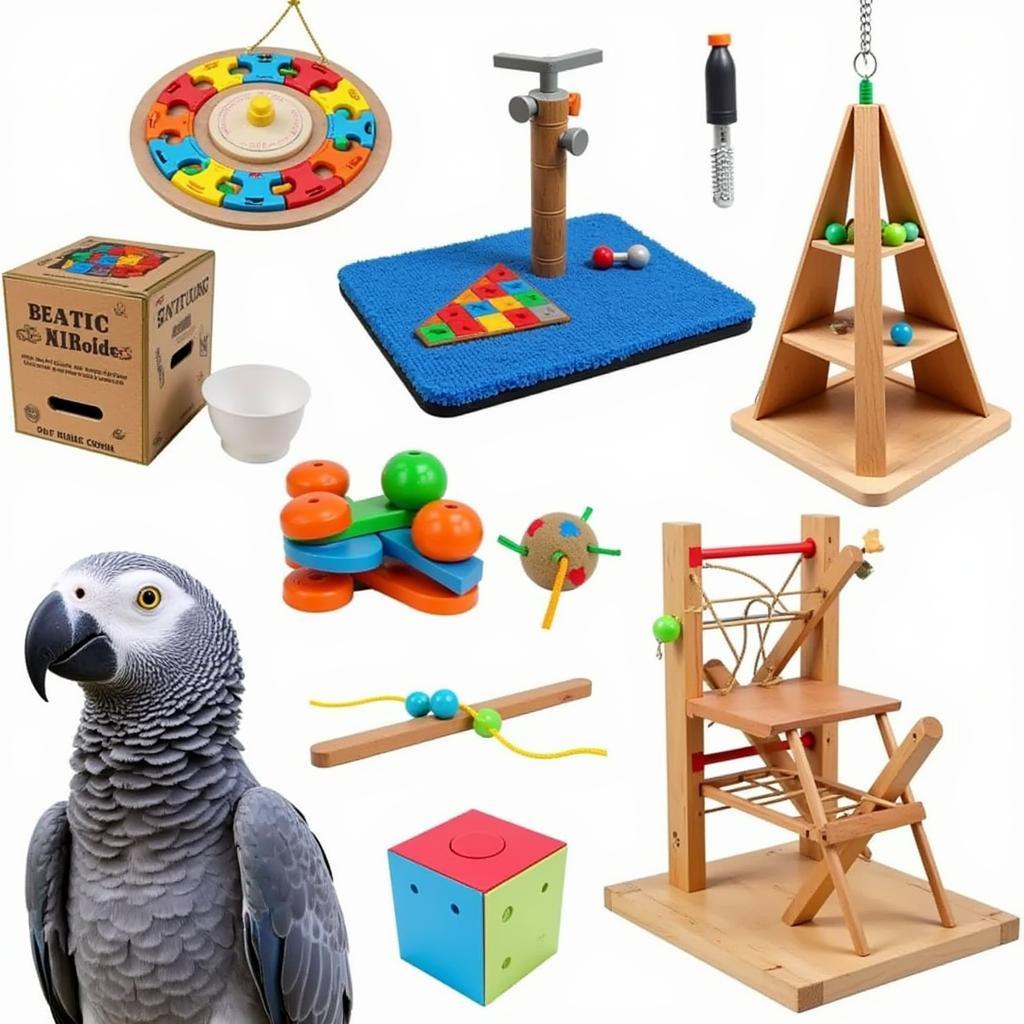Understanding African Grey Diseases
African Grey Diseases are a serious concern for owners of these intelligent and sensitive birds. Ensuring your feathered friend lives a long, healthy life requires understanding potential health issues and providing proactive care. This article delves into the common ailments that can affect African greys, equipping you with the knowledge to recognize symptoms and seek appropriate veterinary care.
Common African Grey Parrot Diseases: A Comprehensive Overview
African greys are susceptible to various diseases, some more common than others. These range from bacterial and viral infections to nutritional deficiencies and psychological disorders. african grey parrot diseases can manifest in various ways, making early detection crucial. Being informed about these potential health risks empowers owners to take preventative measures and provide the best possible care.
Bacterial and Viral Infections
Bacterial infections like psittacosis (also known as parrot fever) can be particularly dangerous. Symptoms include respiratory problems, lethargy, and discharge from the eyes or nostrils. Proventricular Dilatation Disease (PDD), a viral infection, affects the digestive system, leading to weight loss, vomiting, and changes in droppings.
“Regular veterinary checkups are vital for preventing and managing these infections,” advises Dr. Anika Patel, an avian veterinarian specializing in parrot care. “Early diagnosis significantly improves the chances of successful treatment.”
Nutritional Deficiencies
An inadequate diet can lead to a variety of health problems in African greys. Calcium deficiency, for example, can cause seizures and weakened bones. Vitamin A deficiency can compromise the immune system and lead to respiratory issues. Providing a balanced diet rich in fresh fruits, vegetables, and high-quality parrot pellets is crucial for preventing african grey parrot common health problems.
Psychological Disorders
African greys are highly intelligent and emotional creatures. Stress, boredom, and lack of social interaction can lead to psychological disorders like feather plucking, self-mutilation, and excessive vocalizations. Enrichment through toys, social interaction, and a stimulating environment is essential for maintaining their mental well-being.
What are the signs of a sick African grey? Look out for changes in behavior, such as lethargy, reduced appetite, or feather plucking. Changes in droppings, respiratory distress, and discharge from the eyes or nostrils are also warning signs.
“Providing a stimulating environment and a balanced diet is crucial for preventing psychological disorders,” adds Dr. Samuel Mwangi, a wildlife biologist with expertise in avian behavior. “A happy and engaged African grey is a healthy African grey.”
Proactive Care and Prevention of African Grey Diseases
Understanding the potential african grey diseases is the first step toward providing proactive care. Regular veterinary checkups are crucial for early detection and treatment. Maintaining a clean and stimulating environment, offering a balanced diet, and ensuring proper hygiene are essential for preventing many common ailments. African grey parrot care is a commitment to their long-term health and happiness.
How can you ensure your African grey stays healthy? Provide a balanced diet, a stimulating environment, and regular veterinary care. Early detection and treatment of any health issues are crucial for a long and happy life for your feathered companion. Consider visiting an african grey pet shop for expert advice and supplies.
In conclusion, understanding African grey diseases is vital for every owner. By being aware of potential health risks, practicing proactive care, and seeking prompt veterinary attention when needed, you can help your African grey thrive and enjoy a long, healthy, and fulfilling life.
FAQ
-
What are the most common diseases in African greys? Common ailments include bacterial and viral infections, nutritional deficiencies, and psychological disorders.
-
How can I prevent diseases in my African grey? A balanced diet, a stimulating environment, regular veterinary checkups, and proper hygiene are essential for disease prevention.
-
What are the signs of a sick African grey? Look for changes in behavior, droppings, respiratory distress, and discharge from the eyes or nostrils.
-
How often should I take my African grey to the vet? Annual checkups are recommended, and more frequent visits may be necessary if you notice any signs of illness.
-
Can humans get diseases from African greys? Yes, some diseases, like psittacosis, can be transmitted from birds to humans. Practice good hygiene and consult a doctor if you experience any symptoms after handling your bird.
-
What is the best diet for an African grey? A balanced diet should consist of fresh fruits, vegetables, high-quality parrot pellets, and a small amount of seeds and nuts.
-
How can I create a stimulating environment for my African grey? Provide a variety of toys, opportunities for social interaction, and a spacious cage with plenty of perches and climbing structures.
Common Scenarios and Questions
-
Scenario: Your African grey is plucking its feathers. Question: What could be causing this behavior? Feather plucking can be caused by stress, boredom, nutritional deficiencies, or underlying medical conditions.
-
Scenario: Your African grey is lethargic and not eating. Question: Should I be concerned? Yes, these are signs of illness and require immediate veterinary attention.
Further Reading and Resources
- Check our articles on specific African grey diseases for more in-depth information.
- Consult with an avian veterinarian for personalized advice on your bird’s health.
Need Help? Contact Us!
For 24/7 support, call us at +255768904061, email us at kaka.mag@gmail.com, or visit us at Mbarali DC Mawindi, Kangaga, Tanzania. Our dedicated customer service team is always ready to assist you.
